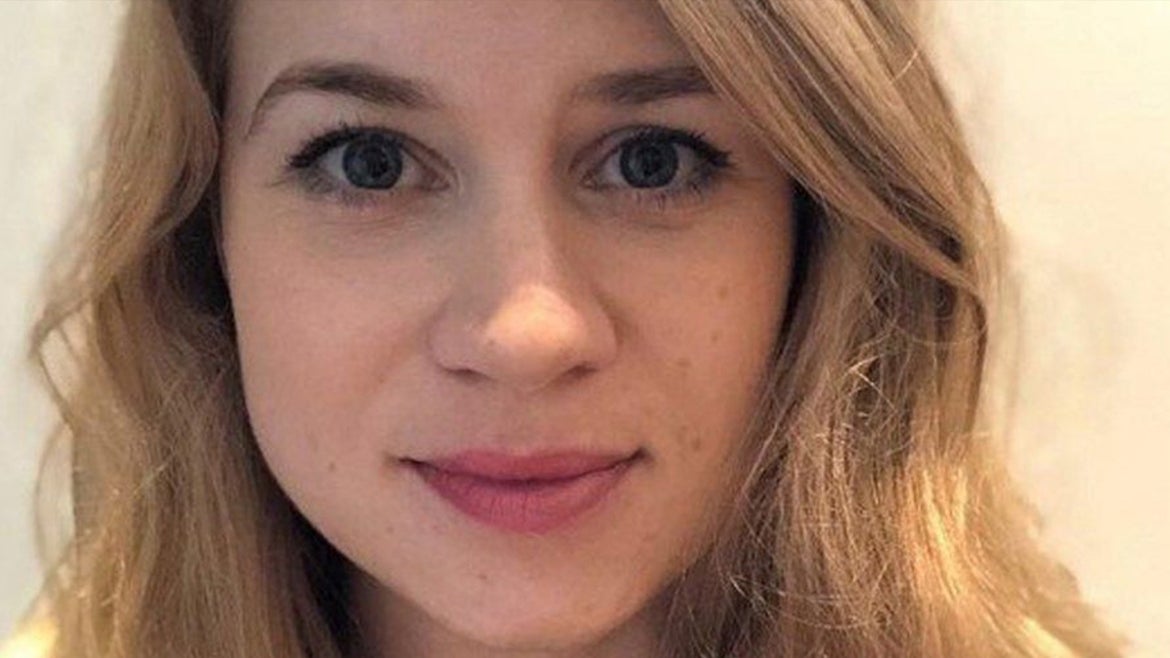Sarah Everard was abducted on March 3 on her walk back from a friends house. Her body was found in the woods a week later.
An autopsy reveals that Sarah Everard, a 33-year-old English woman who was kidnapped and murdered, allegedly by a Metropolitan Police officer, died from compression of the neck, according to an autopsy report.
Everard went missing around 9 p.m. on March 3 as she walked home from a friend's apartment in Clapham, The Guardian reported.
After a major police investigation, her body was eventually found in a wooded area about 50 miles from where she was last seen alive just a week before.
"A postmortem examination into the death of Sarah Everard held at the William Harvey hospital in Ashford has given cause of death as compression of the neck," Metropolitan police said. "Sarah's family have been informed and are being supported by specialist officers."
Wayne Couzens, 48, an officer on the Metropolitan police force, has been charged with her kidnapping and murder. He is expected in court in July for a plea hearing.
According to the BBC, Couzens joined the force in 2018 and patrolled various diplomatic premises, including Downing Street, Westminster Palace and foreign embassies in London. He was also a trained firearms officer.
Commissioner Cressida Dick said in a televised statement that news of the officer’s arrest “sent waves and shock and anger through the public” and the entire force.
“I speak on behalf of all my colleagues in the Met when I say we are utterly appalled at this dreadful news,” Dick said.
A day after Couzens’ initial arrest, human remains were discovered in a wooded area in Kent, according to The New York Times. Couzens, 48, was then re-arrested on suspicion of murdering Everard.
On March 12, Everard’s body was identified through dental records, and Couzens was charged with her kidnapping and murder, the Times reported.
In a statement, Everard’s family remembered her as “bright and beautiful” and “a wonderful daughter and sister.”
“She always put others first and had the most amazing sense of humor. She was strong and principled and a shining example to us all,” the statement continued.
Within days, Everard’s disappearance and death sparked a national reckoning over women’s safety.
“Her name was Sarah Everard. She was just walking home. She did everything we're supposed to do to stay safe; covered her body, stuck to main streets, called her partner. She was just walking home,” one woman wrote on Twitter.
“Like so many women on here, I‘m thinking about Sarah Everard, her family and friends. That could have been any of us. There’s so much emphasis on teaching girls how ‘to be safe’ as though that will protect us, when really we need a different conversation: how to end male violence,” Sunday Times journalist Rosamund Urwin wrote on Twitter.
London Mayor Sadiq Khan said that London’s streets are not safe for women and girls, the Independent reported, citing his comments on a local talk radio station.
“If you’re a woman or a girl, your experiences of our city, in any public space, whether it’s in the workplace, on the streets, on public transport is very different to if you are a man or a boy. And it’s really important that people like me in positions of power and influence understand that and take steps to address that,” Khan said.
Home Secretary Priti Patel released a statement saying that "every woman should feel safe to walk on our streets without fear of harassment or violence" and announced that new laws were being considered to protect women against sexual harassment in public.
Many have showed their support for Everard, including Catherine, the Duchess of Cambridge, or Kate Middleton, who left flowers at a vigil for the slain woman on March 13.






